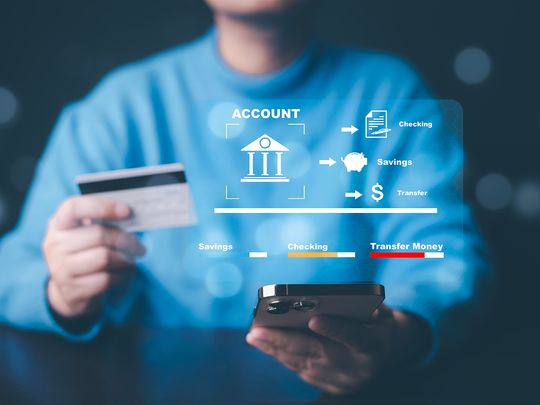
As a college student, before you transition from regularly receiving an allowance to earning your own income through a part-time or full-time job, UAE-based financial coaches explain how there are more than upsides to setting up your own bank account while you are still studying.
“It’s true you’re never too young to get serious about managing money, as it’s easy for even young adults to limit their allowances to what’s most in style or the latest hype without fearing for consequences as much as their parents,” said Abu Dhabi-based financial planner Andrea Barbara.
All major banks worldwide offer a package of student account services with similar terms, and different perks that will be best suited to you based on your own financial circumstances.
What bank accounts are ideal for college students?
Dubai-based money coach Mirin Raul said ‘easy-access accounts’, which are sometimes also known as instant-access accounts’ generally pay “reasonable” interest rates to college students in the UAE, and elsewhere in the world.
“The main idea with easy-access accounts is that you pay cash into them, they pay you interest while the money is in the account and you can withdraw whenever you want – especially useful if you'll need to dip into them regularly,” added Raul.
“Although, such student saving accounts limit the number of withdrawals you can make each year, so you don't have to wait fixed periods of time to take out money. Another major bonus is that they tend to have low minimum deposit amounts.”
Can college students opt for variable savings rates?
Rates on these easy-access accounts are variable, which means they can go up or down. “You'll be notified of any change [in rates], but you should regularly check for the current top payer. If your account is lagging, simply move your cash to another,” said Barbara.
“If you'd rather a guaranteed interest rate, you may need to sacrifice this flexibility and lock cash away in a fixed savings account. Considering that rates are expected to rise this year, you can benefit by opting for variable rates instead.”
Barbara added that it makes sense to get a variable rate account if you plan to pay off your student loan early. “Such savings accounts allow you to have some wiggle room in your budget. You have good or excellent credit to qualify for the best rates and terms.”

How useful are bank accounts in managing finances?
Fahed Abbas, 22, who was born and brought up in Abu Dhabi and graduated from university last year, agreed how setting up a bank account played an integral role in understanding the workings of personal finance and money management.
“Even though having a bank account doesn’t mean I was never worried personally about making mistakes with my money, it also helped me to set additional rules or impose control on my spending,” said Abbas. “Having a bank account alone didn’t help, keeping track did.”
Raul further noted that students who learn to manage a bank account when they have limited funds are more likely to manage their money well when they have a full-time job after graduation. “It’s the time to learn about reconciling an account while you have a small balance and a few bills,” she said.
Should college students have multiple savings accounts?
Anjuma Khan, a Malaysian journalism student at Middlesex University Dubai, said it helped her save money in two student saving accounts with UAE-based banks as it gave her a grasp on her spending and save for later. The 21-year-old now interns as a copywriter for an organic products retailer.
“Getting two student bank accounts was my first lesson in money management. With student accounts, I could keep track of the money I put in and never lose the money. It allowed me to gain a sense of how to budget my earnings and set the stage for how to manage money as an adult," explained Khan.
“In many ways, opening a student bank account can serve as a stepping stone to a credit card. If a student has a debit card, they learn the importance of making sure you only spend what you have. Managing a debit card is effective in having an edge when learning responsibility,” added Raul.
Bottom line?
A student account not only gives you access to conveniently receive money for expenses, but it can help you understand the basics of day-to-day money management, while helping you realise the importance of setting aside funds before you start working a part-time or full-time job.
“With cash in the bank, your deposits are always safe. A student may need cash for expenses, but there are times that cash makes it more difficult for a student to keep up with their funds,” added Barbara.
“A student account allows the student to decide when it’s necessary to use a card and when it’s a good time to use cash (by visiting an ATM). They will be prepared for any transaction and gain valuable responsibility in the process.”
Fees: Some banks charge monthly account fees or fees for certain transactions. Be sure to compare the fees charged by different banks before you choose an account.
Interest rates: If you plan on keeping a balance in your account, you may want to choose an account that offers interest. Compare the interest rates offered by different banks before you choose an account.
ATM access: Make sure the bank you choose has a wide network of ATMs so that you can easily access your cash.
Online and mobile banking: Online and mobile banking can be very convenient for students. Make sure the bank you choose offers these services.
Customer service: It is important to choose a bank with good customer service. Read online reviews to see what other students have to say about the customer service offered by different banks.

_resources1_16a4a1613d8_small.jpg)







